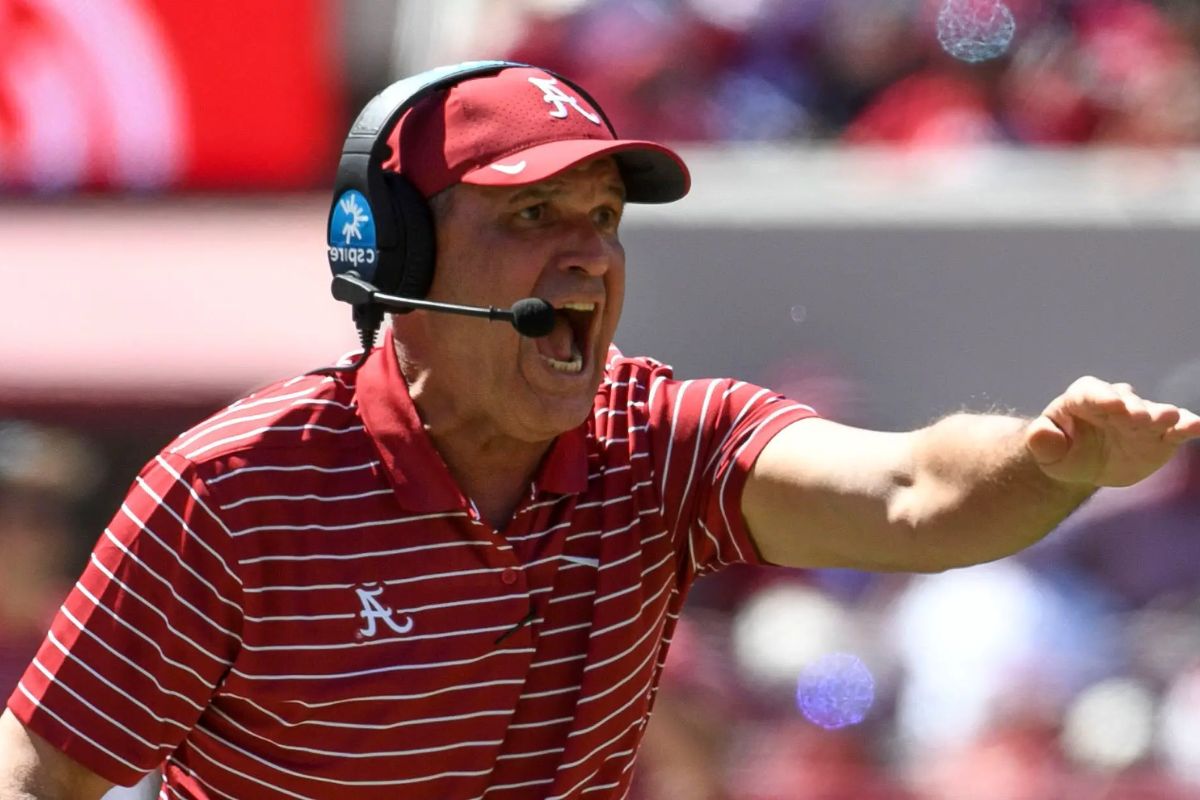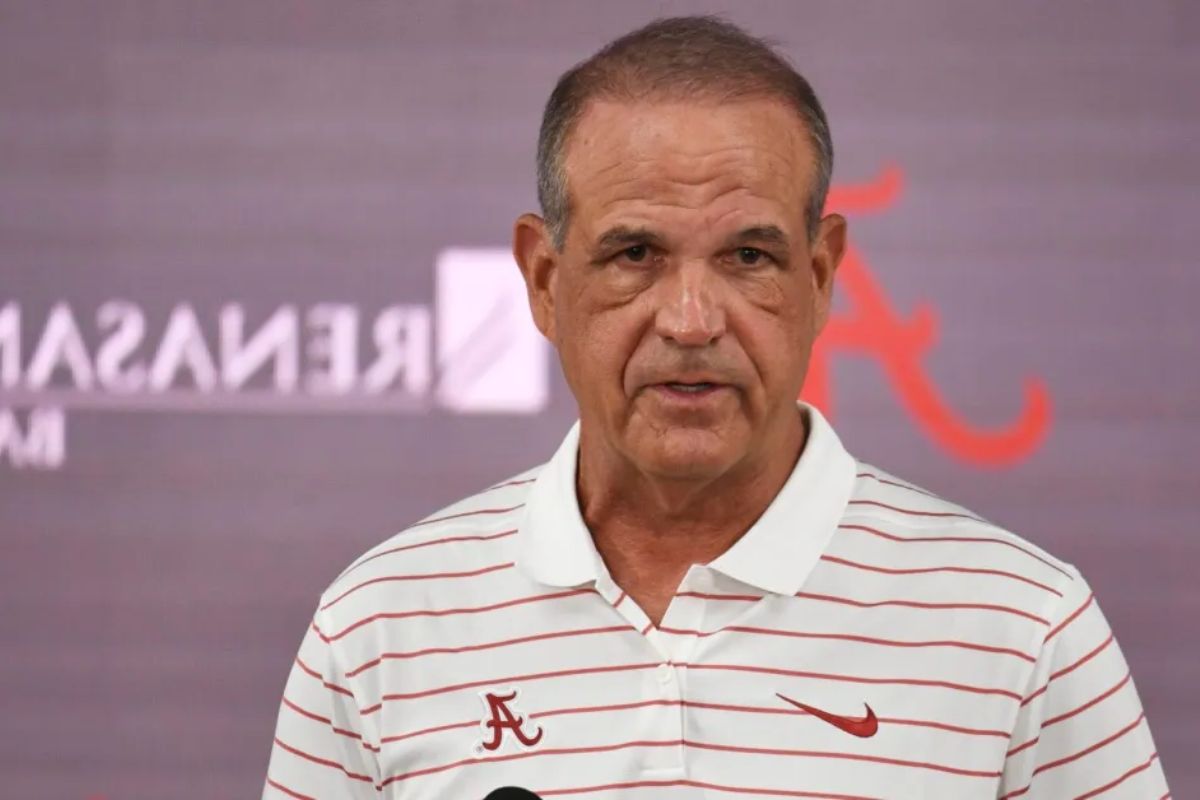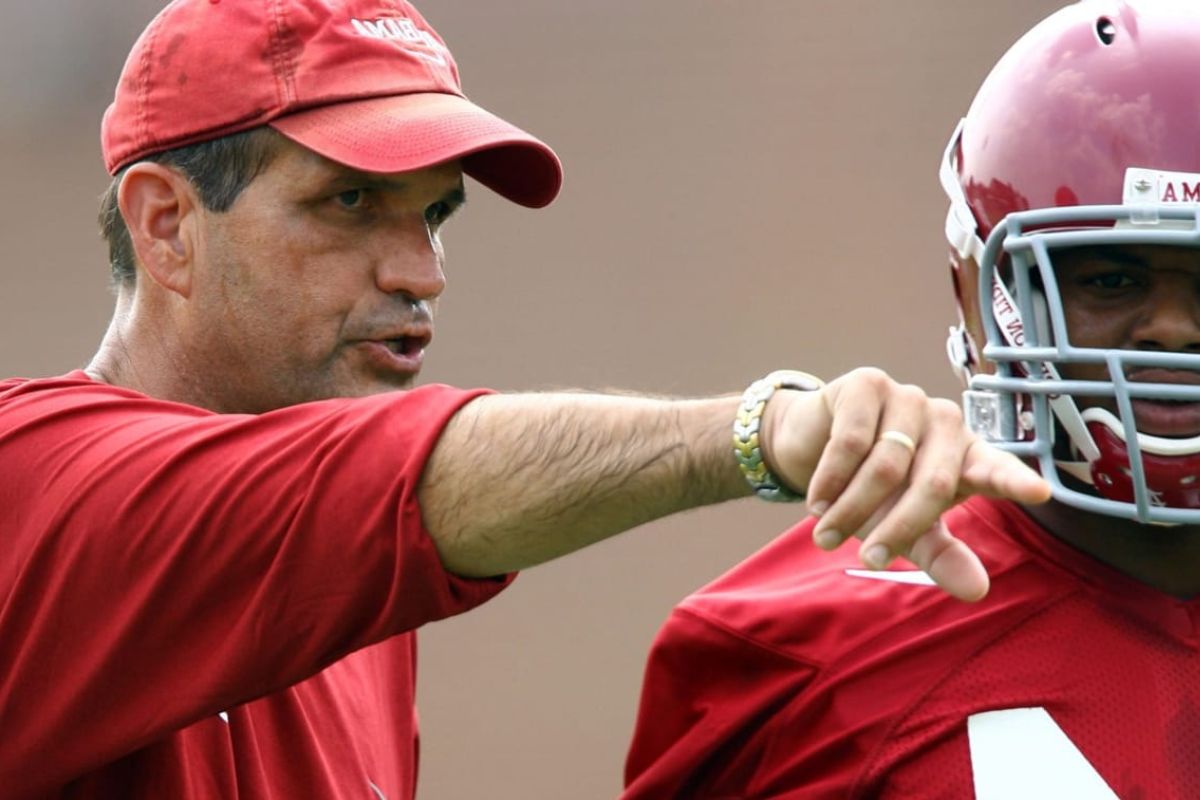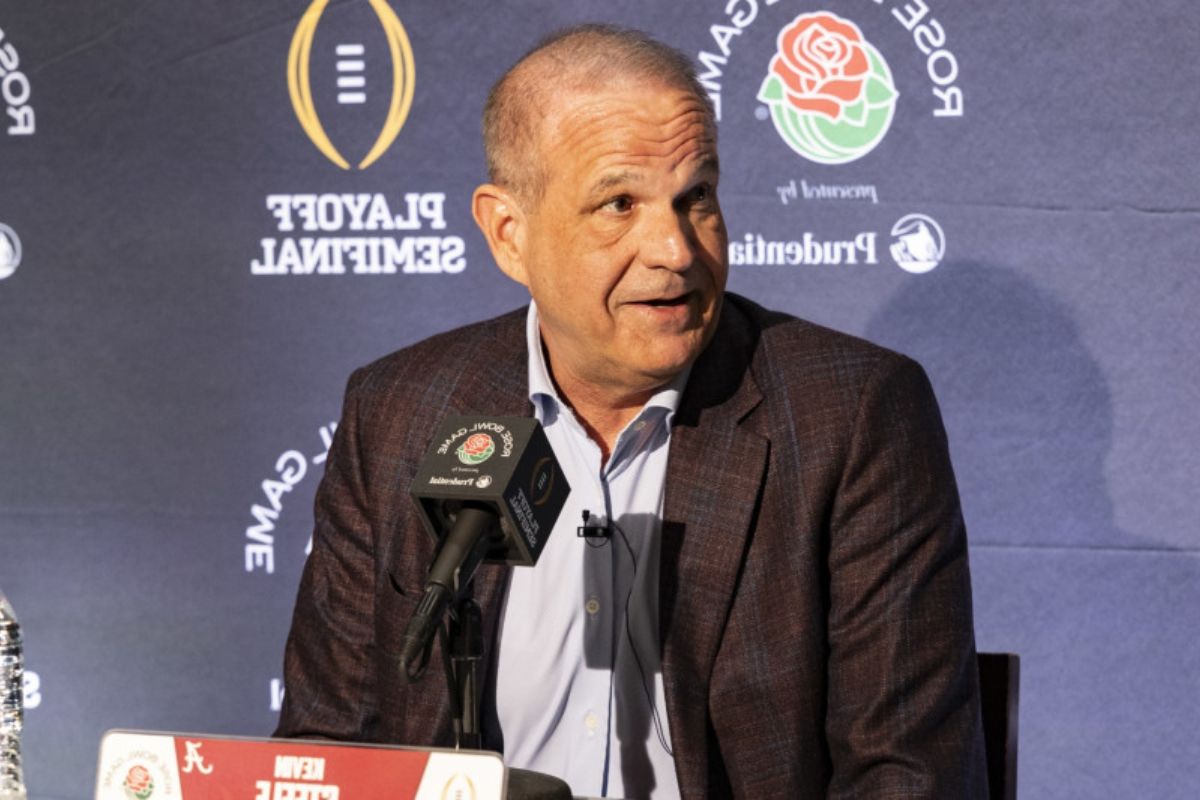Coordinator Kevin Steele Announces Retirement: Kevin Steele, the esteemed defensive coordinator for the University of Alabama’s football program, has made the difficult decision to retire at the age of 66. With a career spanning decades, Steele has left an indelible mark on the world of college football through his coaching prowess and strategic contributions.
As his retirement looms, questions arise regarding the impact this departure will have on Alabama’s renowned defense. Steele’s career, his retirement decision, potential successors, and the future of Alabama’s defensive unit.
Key Takeaways
- Kevin Steele is an esteemed defensive coordinator in college football.
- Steele has had significant coaching contributions at Alabama, Clemson, and Auburn.
- Steele’s retirement will have a significant impact on Alabama’s defense.
- Travaris Robinson, Freddie Roach, and Charles Kelly are potential successors to Steele as Alabama’s defensive coordinator.
Career Overview and Accomplishments
What are the key highlights of Kevin Steele’s career as a defensive coordinator?
Throughout his illustrious career, Kevin Steele has established himself as one of the most accomplished defensive coordinators in college football.
With three separate stints alongside coaching legend Nick Saban at Alabama, Steele has played a pivotal role in the team’s defensive success. Known for his ability to make halftime adjustments and seamlessly integrate into Saban’s defensive system, Steele’s contributions have been instrumental in Alabama’s 16th national ranking in scoring.
His expertise and strategic prowess have been evident in the team’s consistent dominance on the defensive side of the ball.
Additionally, Steele’s extensive coaching experience at various top-tier programs such as LSU, Auburn, and Miami further solidify his reputation as a masterful defensive coordinator.

ALSO READ: Derrick Henry Makes History All Time NFL Rushing Leader
Coaching Journey and Contributions
Throughout his coaching journey, Kevin Steele has made significant contributions to multiple top-tier programs. His expertise and dedication have left a lasting impact on the teams he has worked with. Here are some key highlights of Steele’s coaching journey and contributions:
- Alabama (2007-2008, 2014-2020): Steele initially joined Nick Saban’s staff in 2007 and returned in 2014 as the defensive coordinator. During his tenure, Alabama’s defense consistently ranked among the best in the nation, playing a crucial role in the team’s success.
- Clemson (2009-2011): As the defensive coordinator at Clemson, Steele played a pivotal role in transforming the Tigers’ defense into a formidable unit. Under his guidance, Clemson’s defense showed tremendous improvement and became a force to be reckoned with.
- Auburn (2016-2020): Steele served as Auburn’s defensive coordinator and interim head coach. His leadership and strategic acumen helped the Tigers maintain a strong defensive presence in the highly competitive SEC.
Steele’s coaching journey is characterized by his ability to elevate the performance of the teams he worked with and leave a lasting impact on their success.
Retirement Decision and Impact on Alabama’s Defense
Kevin Steele’s retirement at the age of 66 will undoubtedly have a significant impact on Alabama’s defense. With his departure, the team will need to find a new defensive coordinator for the second consecutive year, posing a challenge for head coach Nick Saban. The loss of Steele’s expertise and leadership will be felt, as he played a crucial role in shaping Alabama’s defensive prowess. To understand the potential impact of his retirement, let’s examine a table showcasing Alabama’s defensive performance under Steele’s guidance:
| Season | Points Allowed per Game | Total Yards Allowed per Game |
|---|---|---|
| 2019 | 18.6 | 324.4 |
| 2020 | 19.4 | 352.2 |
| 2021 | To be determined | To be determined |
As seen from the table, Alabama’s defense improved under Steele’s tenure, consistently allowing fewer points and yards per game. His retirement will require the team to adapt and find a new defensive coordinator capable of maintaining this level of excellence.

Potential Successors
Alabama’s search for a new defensive coordinator begins as Kevin Steele announces his retirement at the age of 66. With Steele’s departure, the Crimson Tide will be looking for a candidate who can maintain the team’s strong defensive tradition and continue to develop talented players.
Internal candidates Travaris Robinson, Freddie Roach, and Charles Kelly are being considered for the role. Robinson stands out for his exceptional recruiting skills and SEC experience, while Roach brings valuable coaching experience with the defensive line. Kelly, with his previous experience at Alabama as associate defensive coordinator and safeties coach, also adds depth to the list of potential successors.
The decision will ultimately depend on the program’s priorities and the qualities each candidate brings to the table.
Product Specs:
- Strong defensive coaching background
- Experience in developing players
- Familiarity with the SEC and Alabama’s defensive system
Pros:
- Internal candidates have existing knowledge of the program
- Robinson’s exceptional recruiting skills could benefit the team
- Roach’s experience coaching the defensive line adds valuable expertise
Cons:
- Lack of experience as a defensive coordinator for all internal candidates
- Potential need for a transition period for the new coordinator to adjust to the role
- Other external candidates may bring different perspectives and ideas to the program.
Looking Ahead
As the search for a new defensive coordinator begins, the focus now shifts to the future of Alabama’s defensive prowess and the critical decision that lies ahead for the coaching staff. The next appointment will play a pivotal role in maintaining the team’s strong defensive tradition. To ensure continued success, the coaching staff must consider several key factors:
- Experience and Expertise: The new defensive coordinator should possess a deep understanding of defensive strategies and tactics, as well as extensive experience in coaching at a high level.
- Leadership and Communication: Effective leadership skills and the ability to effectively communicate with players and fellow coaches are crucial in fostering a cohesive and disciplined defensive unit.
- Adaptability and Innovation: The coordinator must be able to adapt to changing game scenarios and devise innovative schemes to counter evolving offensive strategies.
The decision to select the right candidate will determine the trajectory of Alabama’s defense for the foreseeable future.

Conclusion Of Coordinator Kevin Steele Announces Retirement
Kevin Steele’s retirement at the age of 66 marks the end of a successful coaching career in Alabama. Throughout his tenure as the defensive coordinator, Steele has made significant contributions to the team’s success.
His retirement decision will undoubtedly have an impact on Alabama’s defense, and the search for a suitable successor begins.
As the program looks ahead, it will be interesting to see how they adapt and continue their winning tradition.
Our Reader’s Queries
Did Kevin Steele retire?
Steele and Linda, his wife, are proud parents of a son, Gordon, and a daughter, Caroline, who graduated from Auburn. Their granddaughter, Sawyer Kate, brings joy to their lives. Gordon is currently serving on the football coaching staff at Alabama.
Is Kevin Steele Married?
In February 2023, Kevin Steele came back to Alabama for his third go-around on head coach Nick Saban’s team, and his second time as defensive coordinator. He hopped over to the Crimson Tide after holding the defensive coordinator position at Miami in 2022.
Who is the new defensive coordinator for the University of Alabama?
Originally from Dillon, S.C., he started off at Furman in his first year before moving to Tennessee, where he joined Majors’ teams. In 1980, he worked as a student assistant coach and then became a graduate assistant in 1981. The next year (1982), he was elevated to the position of outside linebackers coach.

